Who, What, Where & When
The 5th annual Northwest Wilderness Medicine Conference (NWMC) took place January 6-9th, 2023 at Mount Hood Kiwanis Camp (MHKC). The primary mission was to host a wilderness medicine (WM) conference for medical students by medical students. With a two-year hiatus due to COVID-19, we were excited to get the conference back up and running. When we signed up to co-chair the NWMC, it was hard to know what to expect, not having attended the previous conferences. Going through the planning process and pulling off a successful weekend turned out to be one of the most rewarding experiences of medical school. Here, we hope to portray our experience and offer guidance to others who may be considering planning their own conference.
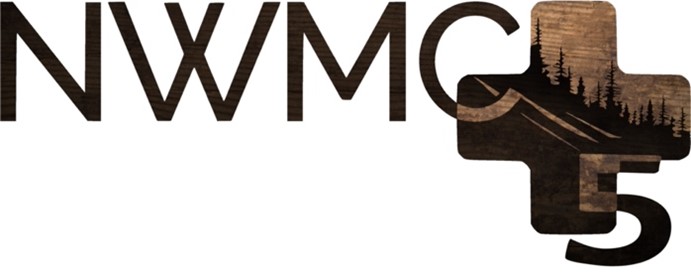
The Northwest WMC consisted of lectures, workshops, and scenarios spread over three days. Additionally, we provided housing, food, and drink to encourage socializing and networking between students, speakers, and other wilderness medicine professionals. We received positive feedback from attendees about the “laid back” atmosphere of the conference, compared to the more formal setting most academic conferences provide.
Mount Hood Kiwanis Camp provided the ideal location for the conference. It’s set on Mount Hood with multiple buildings and ample outdoor space. We hosted larger lectures, group events, and meals in the main hall, while smaller talks and workshops took place in cozy log cabins. Hands-on scenarios were spread out over the outdoor grounds. The camp sleeps 130 in bunk-style rooms, which provides the nostalgic feeling of being at a summer camp. It is also a central location within driving distance of seven medical schools.
The conference was held the first weekend of January to coincide with the end of medical school’s winter breaks. This seems to be a good time of year for medical students’ schedules–few are taking board exams, doing away rotations, or applying to residency.
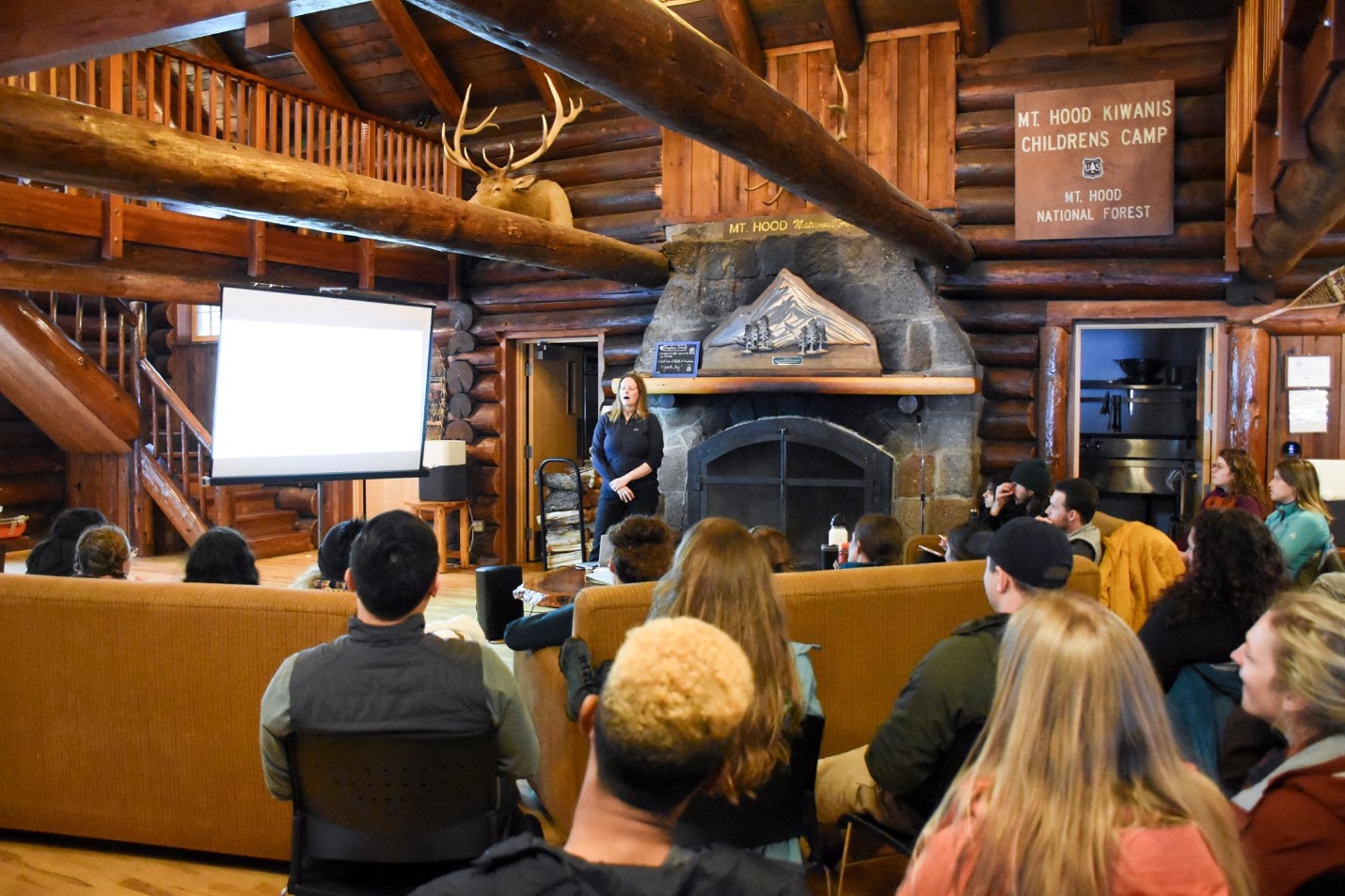
Dr. Condio’s lecture on the first all-women’s NPS patrol on Denali. The log cabin setting created a great atmosphere for wilderness medicine lectures. Photo Credit: Carl Heine.
Leadership Structure
NWMC is a conference organized by Pacific Northwest Wilderness Medicine, a nonprofit that oversees wilderness medicine educational activities for health professions students. The conference was headed by two co-chairs, seven committee heads, and additional student volunteers. We received support from those who ran or attended the conference previously, and their guidance was key to our success.
We found that the co-leader structure worked best for the conference chair position and several of the committees. This provided an easier way to manage the fluctuating bandwidth in our schedules as medical students and added the additional benefit of reducing decision fatigue. The seven planning committees included curriculum, scenarios, sponsorship, food, finance, participants/marketing, and logistics. In total, 15-20 volunteers seemed to be the sweet spot for planning.
Speakers and Workshops
We recruited speakers and workshop leaders based on prior NWMC speakers and known WM experts in the Pacific Northwest. Speakers were provided room and board for the weekend, a conference t-shirt, and a small gift package to communicate our gratefulness. Half of the lectures were large group lectures, and to accommodate varying interests, we provided smaller breakout classes on more niche topics. To break up the time spent in lectures, we provided hands-on workshops. Attendees could pick which lectures and workshops to participate in, which varied from splinting, swift water rescue, patient assessment/transport, ultrasound, and more. To learn more about each of the topics, check out the NWMC5 Program.
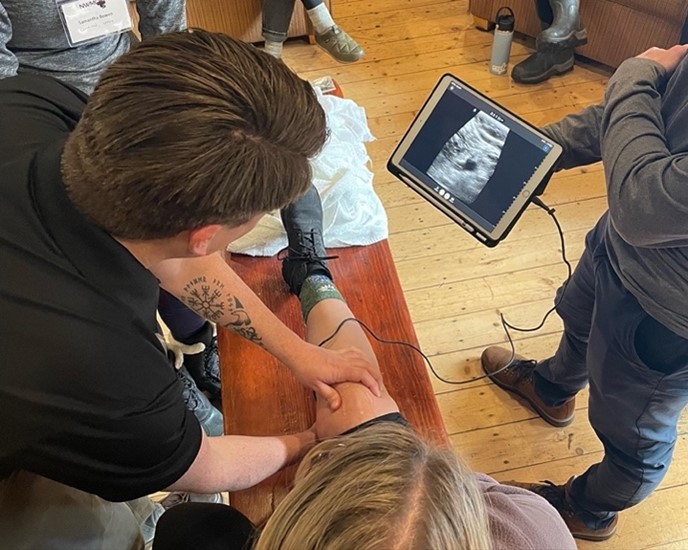
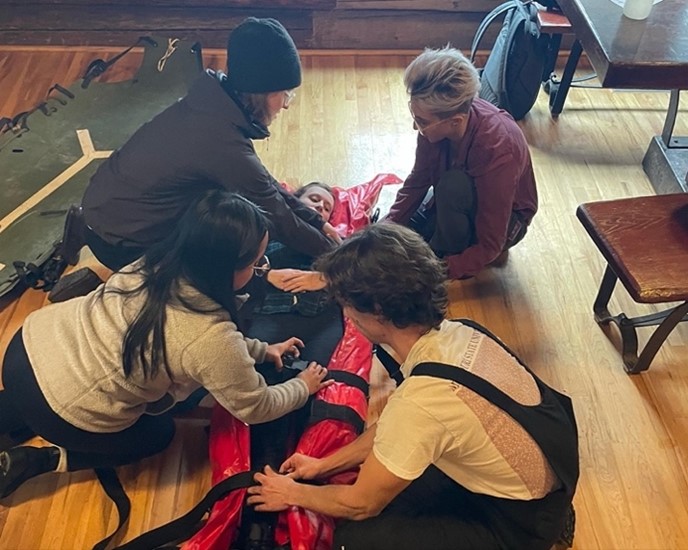
Ultrasound and patient packaging and transport workshops. Photo Credit: Erin Kinney
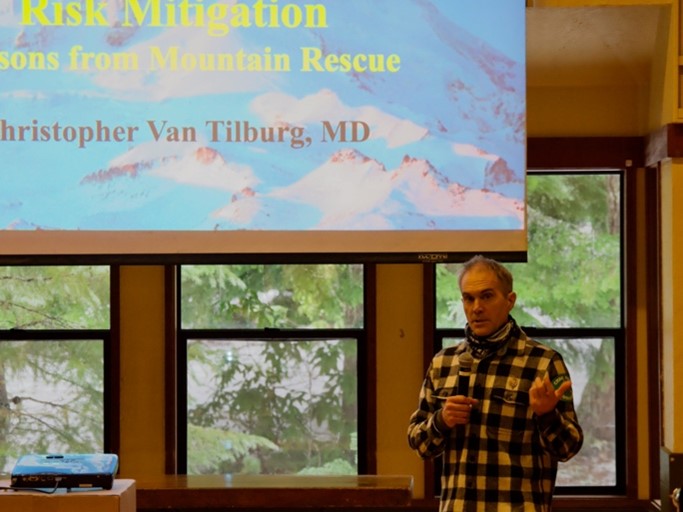
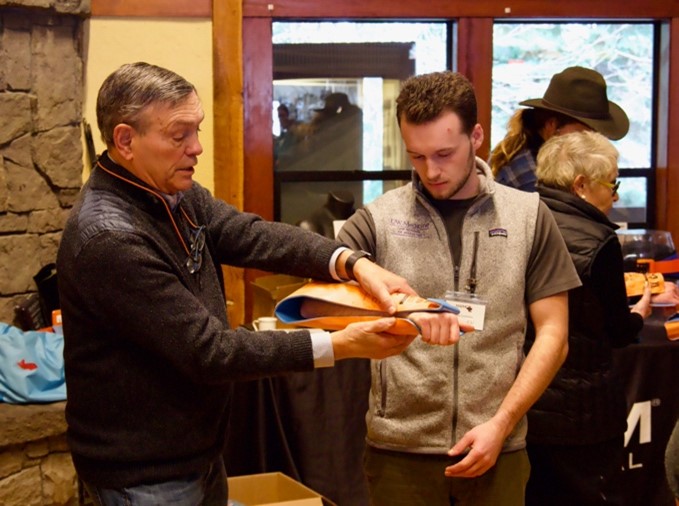
Dr. Van Tillburg’s lecture and Sam of SAM splint workshop. Photo Credit: Carl Heine
Scenarios
On the last day of the conference, we organized a morning of scenarios and mass casualty incidents. It was a great way for attendees to practice what they had learned over the weekend. Our local Search and Research (SAR) teams were a huge asset in making the scenarios run smoothly. They provided volunteers to lead scenarios and debriefs, patient actors, and equipment. From feedback solicited after the conference, the scenarios were the highlight of the conference. We would love to find a way to integrate more of this in the future, the crux being the coordination of logistics for multiple days of scenarios.
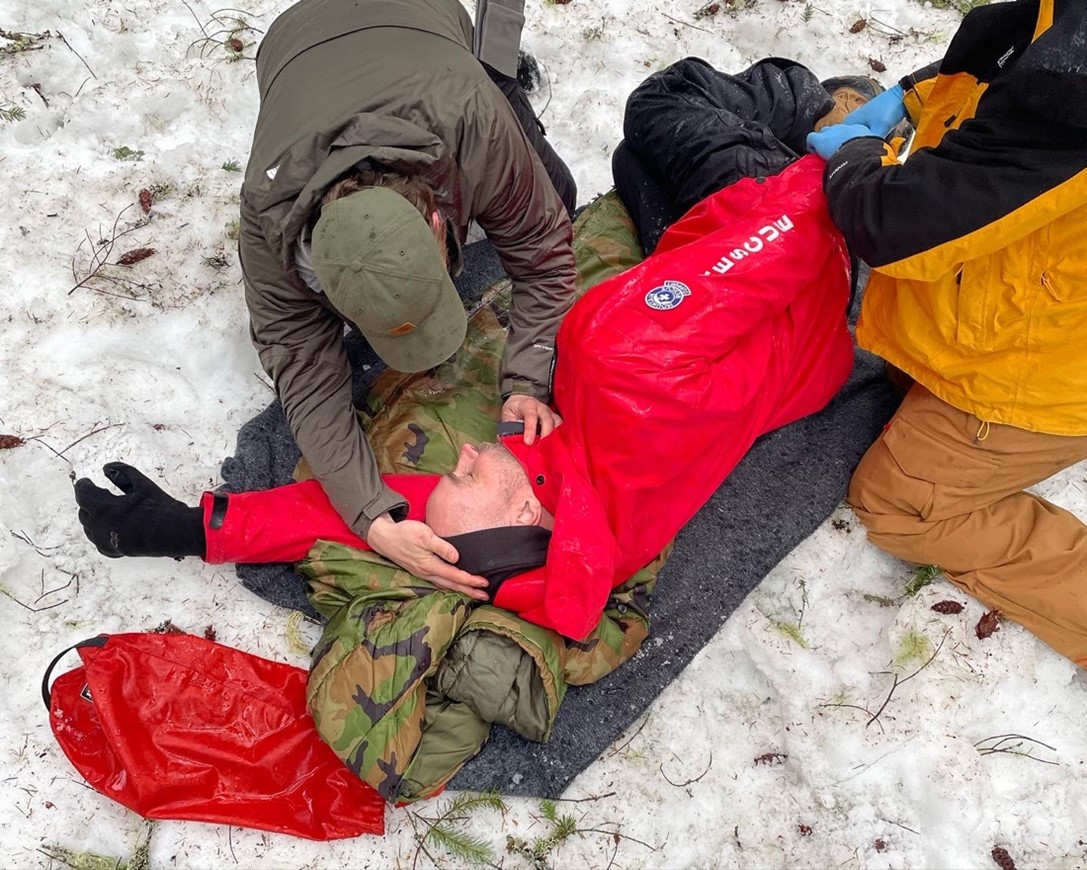
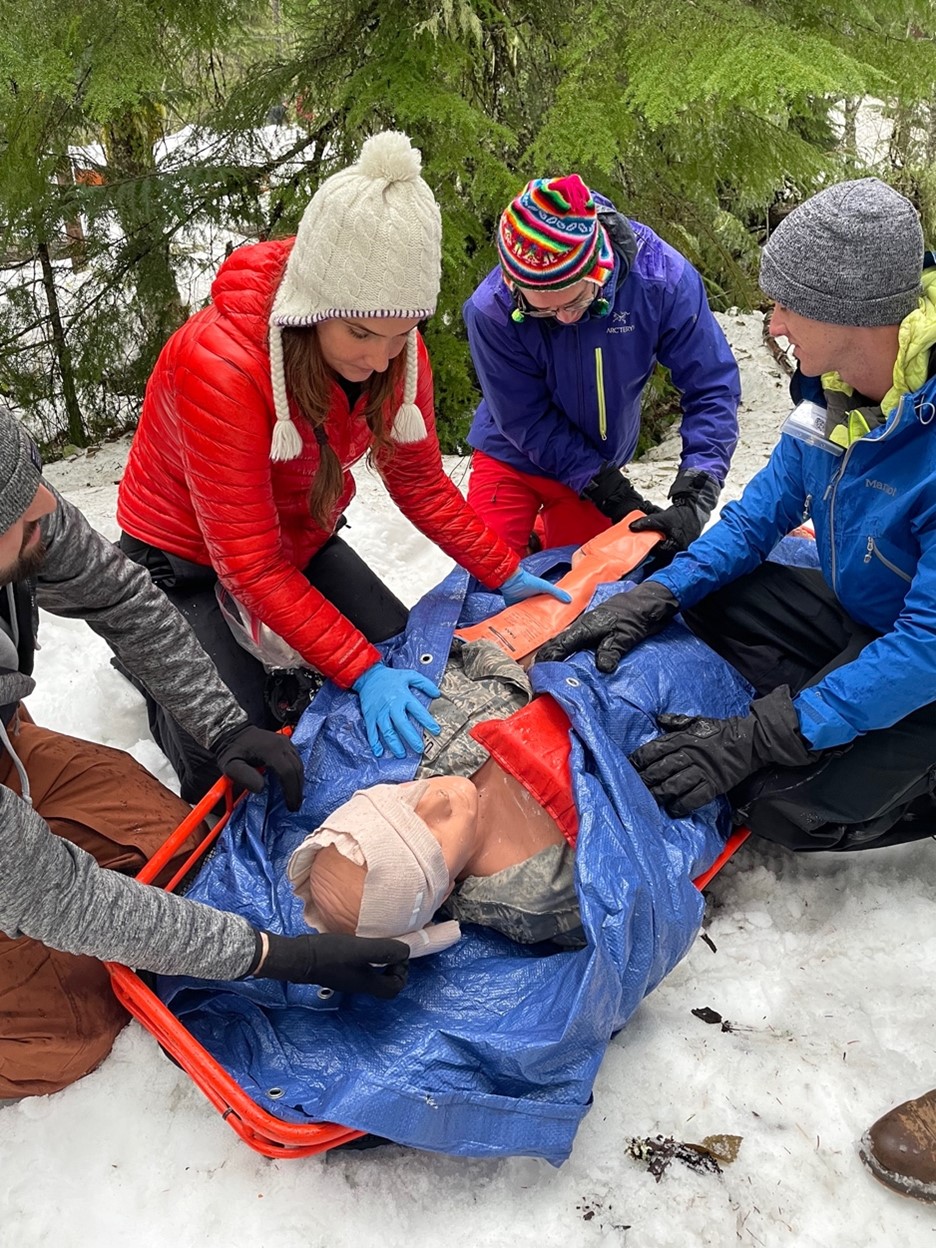
Sunday Scenarios. Photo Credit: Erin Kinney
Sponsorship
The conference would not have been possible without the support of sponsors. Our goal was to provide a quality conference at an affordable price. Having a team of volunteers to reach out to potential sponsors early for auction items, monetary donations, and food and drink was vital to the success of our conference. Due to the significant sponsor outreach, success of the auction, the simple but effective accommodations of MHKC, and preparing the majority of our own food, we kept the whole weekend price to $120 per person.
Food
One of the most challenging parts of planning the conference was the food. We recommend reaching out for donations early as food can be a significant cost. A benefit to the setting of MHKC was that we could prepare group meals with donated and purchased food. We did choose the luxury of having MHKC cater our dinner on Saturday night, which allowed our hard-working volunteers to relax and enjoy the conference that night. Late-night hot snacks were also a hit.
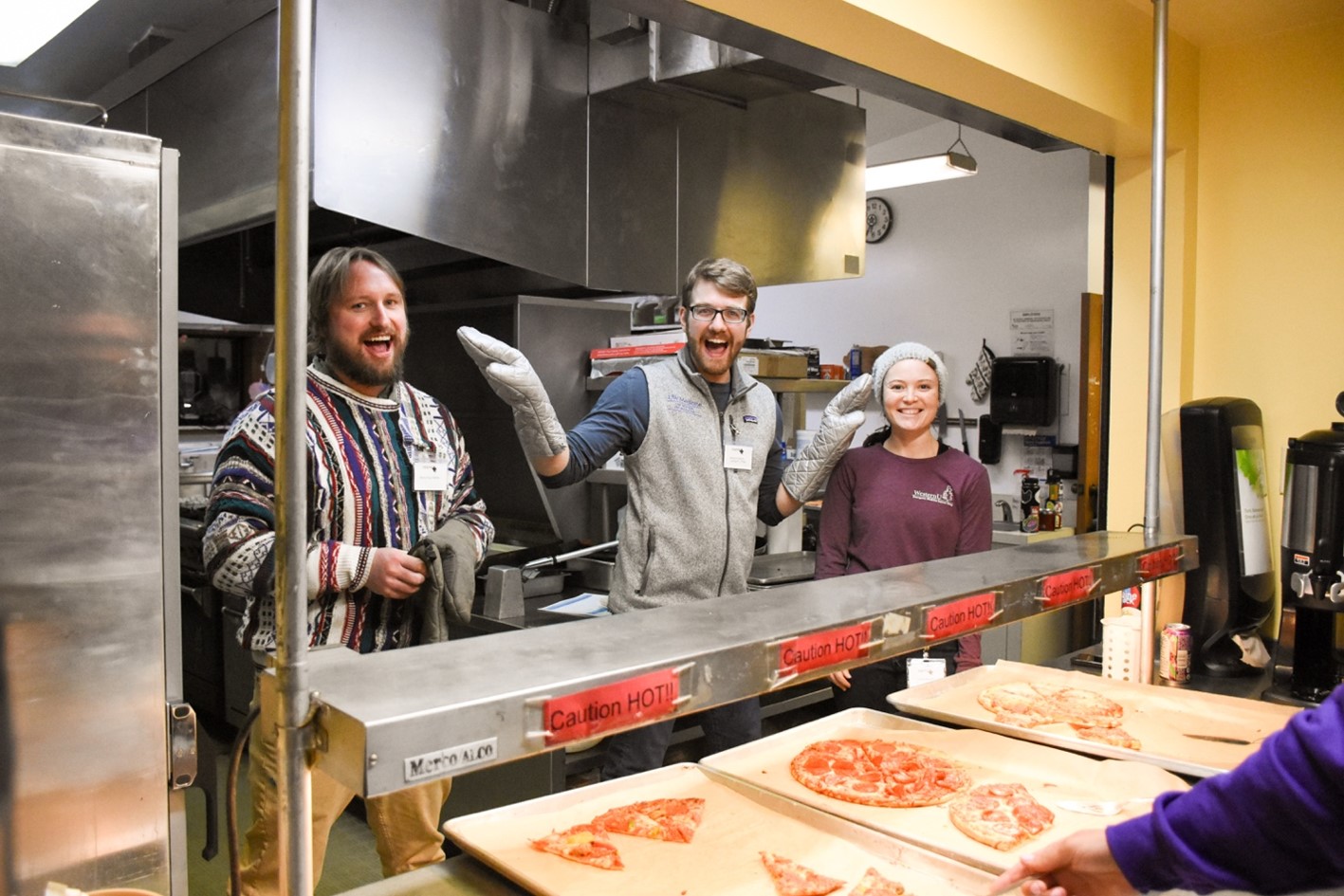
Volunteers serving pizza on night one. Photo Credit: Carl Heine
Participants/Marketing
Advertising on social media and sending correspondence to individual school interest groups worked well to get the word out. Tickets sold out within 15 minutes of opening registration, which we attribute to affordability, including food and lodging, and timing. This committee was also in charge of t-shirts and corresponding with attendees, for which email seemed to be a good medium.
Logistics and Weekend-Of
Having a detailed, weekend-of plan was crucial to understanding all of the moving parts. Assigning volunteers to various duties ensured we had help with check-in, raffle, meals, parking, introducing speakers, and clean-up. The logistics team ensured we had all the gear before the conference and helped in communicating with the venue about the use of their space.
Planning a student run conference can be challenging, requiring detailed organization and dedicated, driven volunteers. With teamwork, advanced planning and support from speakers, volunteers, and sponsors, it will be a very rewarding and successful event.
Tips Summary – from Conference Organizers and Attendee Feedback
- Reach out early to speakers and sponsors
- Keep diversity in the outdoor space in mind
- Recruit reliable volunteers, and consider reimbursing tickets upon volunteer completion
- Advertise early via student interest groups and social media
- A raffle is a great way to keep the cost of the conference down
- Scenarios are by far attendees’ favorite part of the weekend
- Cater a meal or two if the budget allows, relieves a ton of stress
- Solicit feedback from attendees after the conference
- Remember to eat and enjoy the weekend as well!
Contact: Erin Kinney; Eric Schnell; PNWM
Website: pnwmed.org
Instagram: @pnwildmed